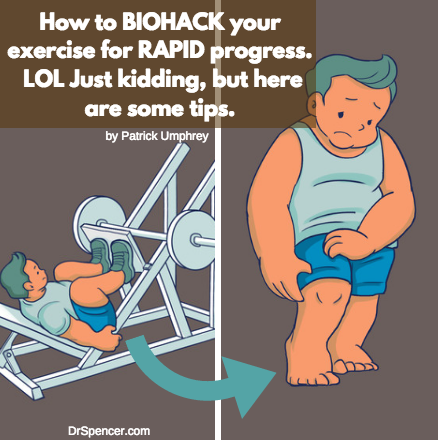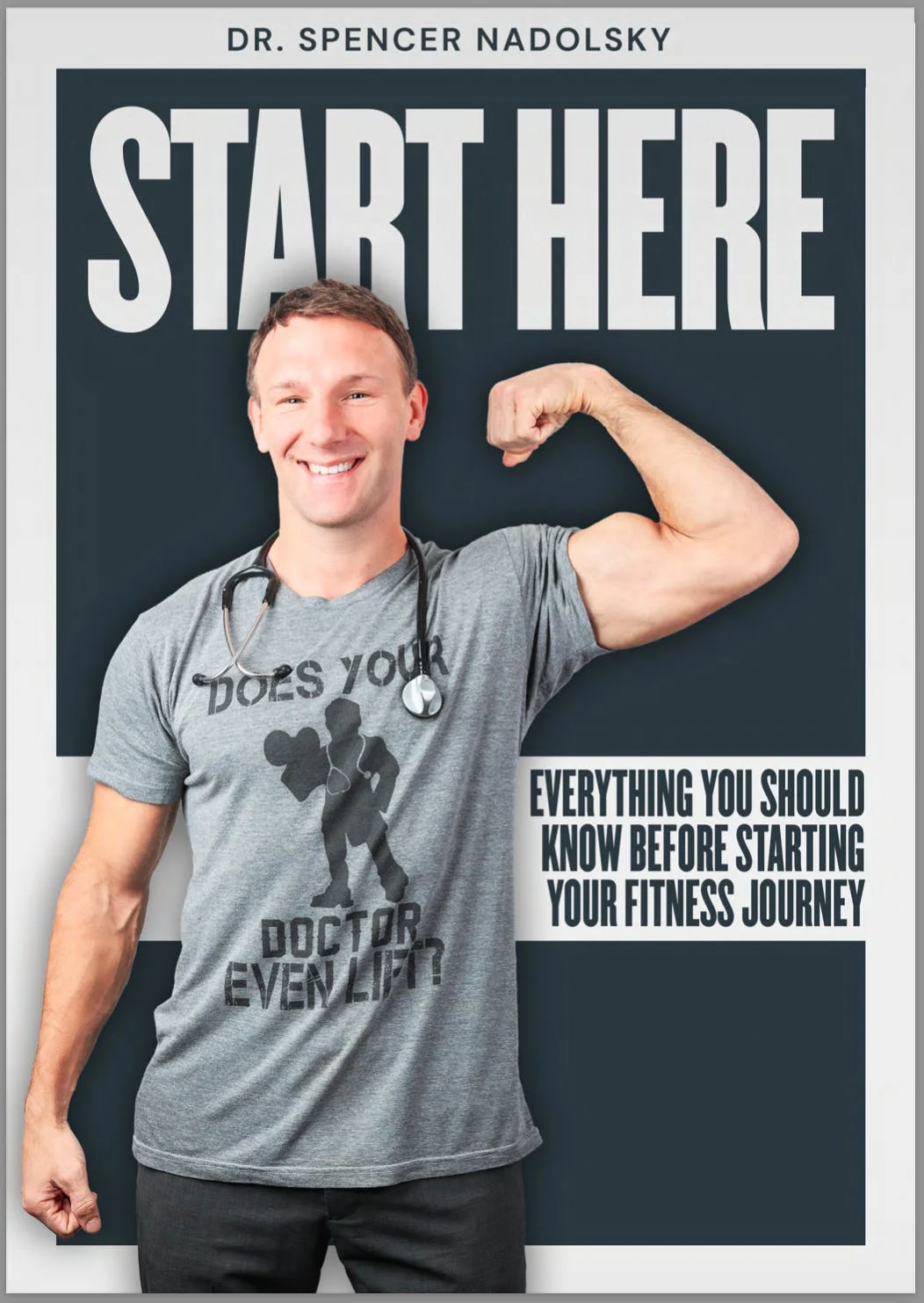
(Note to the Reader: I’m using weightlifting in a gym to make examples because I’m most familiar with this form of exercise; however these examples certainly apply to other forms of exercise)
You’ve been here before: you’re feeling motivated and so you decide you want to get in shape, so you go to the gym to just jump in with both feet and get started.
You train as hard as you can and you wake up the next day feeling like you’ve been hit by a bus. Over the next few days it only gets worse, and by the time you’re finally feeling good enough to train again, you find that you’ve lost the motivation.
You’re not alone – it’s a common experience that I’ve been through several times. It took me over a year of starting and stopping, and starting and stopping, before training finally stuck.
Now, six years later, I’m still going and I absolutely LOVE lifting weights. Rather than the fight it used to be to drag myself to the gym, I look forward to my time there.
This is, in part, because there is a big difference between people who are beginning to exercise and people who are well-trained.
When you are just starting out, you probably have a very low work capacity. You will get exhausted quite rapidly and you might not have the ability to buffer fatigue. Your coordination may not be great and it could cause the exercises you are doing to feel foreign. You may not even be comfortable in your environment (for many, the gym can be intimidating).
And so, you’re not very good at this thing you’re trying to do, and you’re miserable while doing it. When you’re done, you get VERY sore afterwards! Here you are trying to adopt a habit to improve the quality of your life, and it feels like you are being punished for it.
Now let’s consider what it’s like when you are well-trained.
You have decent work capacity. You have developed motor skills to execute movements that are familiar to you. You are comfortable in your environment now and you know how to manage fatigue properly. You are stronger and you are more experienced, which means that learning new exercises (while still new at first) will likely come faster for you and you know what needs to be done to learn effectively.
When you have a good session and maybe even hit a PR, you feel amazing. In addition to the internal satisfaction you have, you might even post a video online and get positive comments from your social network and these comments reinforce that good feeling.
The pain you experience from muscle soreness after training is dampened (due to the repeated bout effect) to the point that you either don’t feel it, or it’s “mild”.
You are no longer trying to adopt a habit; you are just doing something you enjoy.
You are rewarded for doing it.
Unfair, isn’t it? If you ask me, whoever invented this lifters vs non lifters game needs to nerf the lifters, they’re OP!
But if you are among the untrained looking to get into a fitness routine, take heart. There’s good news in this for you. Once you find a way through the roadblocks, you can get to the point where training is not the punishment it seems to be at the start. Overcoming the obstacles may be no small task, but it is possible.
So, if you’ve struggled to get started, here are some general suggestions that could be helpful:
1) Start by selecting from activities or exercise modalities that you enjoy the most or hate the least. Choosing things that are more tolerable or enjoyable will increase your odds of doing it, and in MANY cases people may start with one activity and if they stick to it, and they start making progress, this positive feedback can be the momentum that drives changes elsewhere or later.
2) Consistency is more important than workload especially in the beginning. Doing a little bit and doing it often will likely benefit you more than doing a lot infrequently, primarily because the former makes it easier to develop a habit. Additionally, when you are first starting out, you don’t require as much training stimulus to benefit from the exercise as a well-trained individual does.
3) Don’t take on too much on day 1. Doing too little on day 1 will be a much better choice than doing too much on day 1. You will (and you should strive to) improve over time. By sticking to regular exercise, you will adapt in a way that makes you better at that exercise, and as the days and weeks go on, you will be doing things that you couldn’t do in the beginning.
4) Do not neglect social support. There are awesome people in your life who care about you and there’s an awesome group of people HERE who would love to hear about you and your workout. I know I would, and I don’t care if it’s a under barbell or if you went for a walk.
5) Improve. Start out reasonable, but strive to improve ever so slightly in whatever it is that you’re doing. Are you lifting weights? Gradually you should be doing more repetitions, or more sets, or more weight over several weeks and months of weight lifting. Just increasing things very gently over time will get you VERY far. To use another gaming analogy, you might start out at level 1 farming the little wolves just outside of town, but you’ll level up, get new skills, score some loot, and eventually be able to take down bigger and tougher foes.
In closing I’d like to add in a brief but important point that I’d like you all to consider. If you find yourself struggling, that’s perfectly normal and you should forgive yourself. The last thing you need on top of your struggle is the feeling of guilt or self hate. However, you should also ask yourself why you are struggling and see if you can come up with some answers. This will require some objectivity on your part (perhaps hiring a coach for this can help), but it NEEDS to happen. Failure is an opportunity for growth provided that you treat it as such, and take the steps necessary to grow from it.
I wish you all the best.
-Coach Patrick
Patrick is an online coach with Eat, Train, Progress LLC. You can find him on the internet here. He’s also the co-host of Shredded by Science Radio. He primarily coaches everyday awesome people who are looking to become awesomer. He has a beard. He feels pretty weird typing in third person like this, but he’ll get over it. In addition to working with people on weight loss, he also coaches competitive powerlifters and people aspiring to compete in powerlifting. You should probably go say hello to him. Did I mention the beard?
